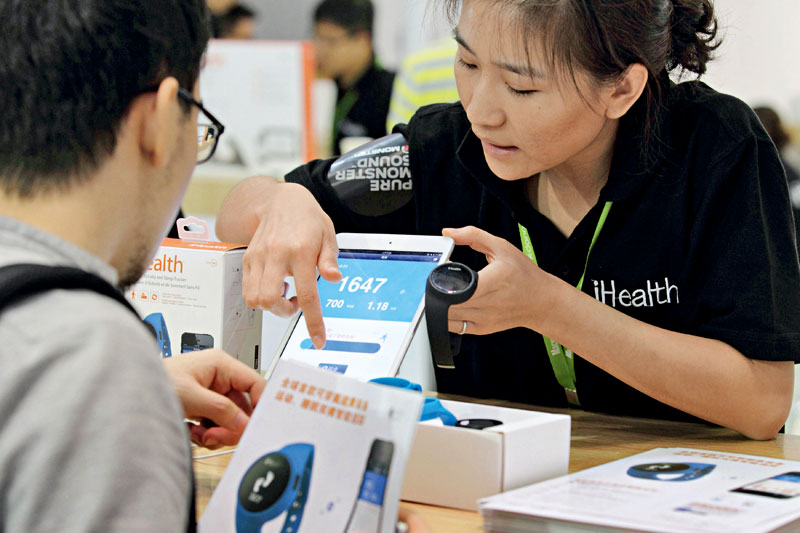Chinese Companies Make Late Push to Join Wearable Device Industry

(Beijing) – Wearable technology, previously associated mostly with surgeons in operating rooms, is now creeping into more aspects of daily life.
The earliest examples of these gadgets were medical devices like pacemakers and heart stents, but now watches and wristbands than can collect information from the wearer and can connect to the Internet are becoming more common.

- MOST POPULAR





